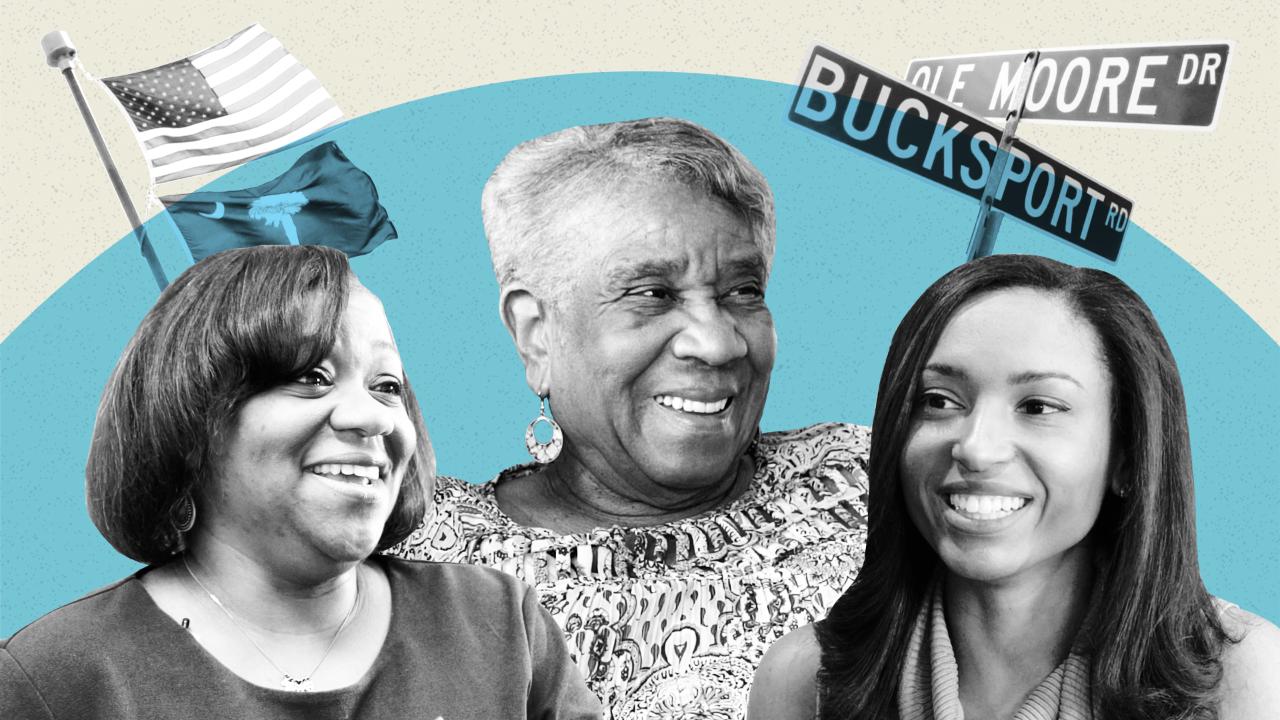
Nana is 82 years old, tall and slim, and has always said exactly what is on her mind, no BS. She grew up in Bucksport but moved to New York in 1957 because of the racism of the time.
“I could not have lived here. I would have been in prison. Honest to God, they were mean. We couldn’t use the bathroom. One was at the courthouse. And it was so filthy, urine would be running out of the door,” Nana tells me, clearly still affected by those days. “I tell you what my mother did, she took a bucket for us to use in the car because we couldn’t go to those nasty bathrooms.”
She returned in 1999 after retiring from her job handling charts at New York–Presbyterian Hospital.
In the years I’ve spent covering politics, my family and their friends and neighbors have been my own little focus group. In presidential election years especially, I hear about their concerns and preferences all year round.
Since 1992, every eventual nominee other than John Kerry has won the state, buoyed by the black vote. Though black people aren’t a monolith, South Carolina is the first test of black support and a good barometer for how the black vote might shake out in other Southern states.
Even before he announced his run, Biden seemed poised lock down the African American vote in South Carolina. But after pretty dismal performances in debates and the first three states, Biden is hobbling into South Carolina.
His campaign has remained outwardly unconcerned, even as polls began to tighten and black voters here started to take closer looks at Bernie Sanders and Tom Steyer. Steyer has spent tens of millions on advertising and visited more than any other Democrat, and his wife moved into a home in Columbia.
After his terrible showing in New Hampshire, the conventional wisdom was that Biden was in serious trouble, and might even lose in South Carolina. So I headed to Bucksport to plop down on a couch I’ve sat on hundreds of times to talk about the primary.
Seniors can vote early, and my Nana cast her ballot weeks ago.
“I voted for Biden. I think he did well as vice president. And I like what he’s saying,” she says smiling, clearly pleased with her choice.
She has seen Steyer’s ads but rolled her eyes when I ask if she likes him. How about Sanders?
“He’s the old man, right? He’s too old for this,” Nana says, laughing. When I tell her Sanders is the frontrunner for the nomination now, she deadpans, “They’re just telling him that.”
I reminded her Biden and Sanders are only a year apart. It didn’t change her mind.
Nana is a perfect stand-in for one of the Democratic Party’s most dependable constituencies: older black women. Many of them love that Biden stood next to, hugged and supported the first black president. It goes a long way.
They feel like they know Biden, that they know what they’d be getting with him. And after fighting so hard for the right to vote — Nana included — older black voters have a pragmatic streak that Biden represents. The former vice president fits that mold.
Biden’s fortunes in South Carolina are on the upswing. This week, a Monmouth University poll found him 20 points ahead of Sanders. But on the ground here, based on my admittedly small sample, the support for him feels strong but not overwhelming: wide but maybe not deep.
Picking a candidate was easy for Nana but not for some of my cousins or even her siblings. My Aunt Vermelle is worried about Biden’s age and has concerns about his “sharpness.”
Columbia City Councilwoman-at-Large Tameika Isaac Devine spoke with nearly every Democratic presidential candidate this year. She hosted eight of them at her home. Even she had a hard time choosing someone to endorse, eventually settling on Elizabeth Warren.
Isaac Devine said voters she encounters all the time are struggling, too.
“Part of it is people recognize how important this election is and how having the right person that speaks to your values, but also that is electable. That’s driving a lot of people’s decisions. And so people are scared to make their own choice,” Isaac Devine said.
That has made the South Carolina election feel more fluid than any I can remember.
But for Nana and other older black voters, however, the choice is a no-brainer. “No, I really didn’t [have a hard time] because I like [Biden]. But if he start acting up, I’m going to have to go up there and tell him a few things.”
Source: politico.com
See more here: news365.stream






